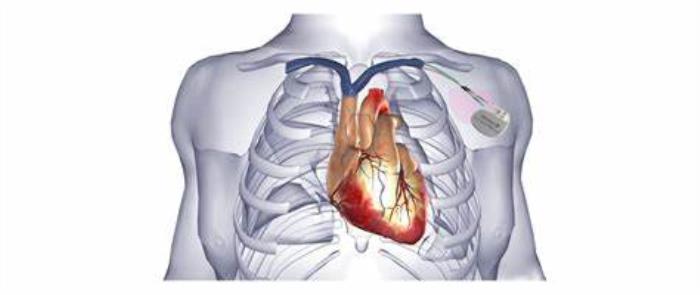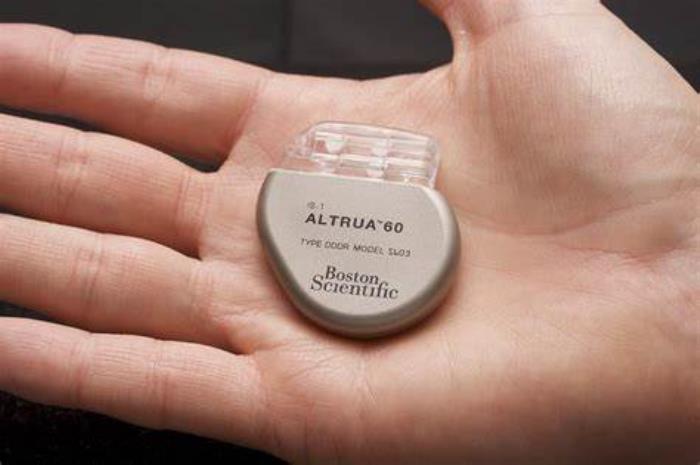Before undergoing pacemaker implantation, a thorough pre-surgery evaluation is essential to ensure the procedure is safe and appropriate for the patient. This evaluation helps healthcare providers assess the patient's overall health, heart function, and any underlying conditions that may influence the success of the surgery or recovery process. By identifying potential risks and tailoring the approach accordingly, pre-surgery assessments help improve outcomes and minimize complications.
What is a Pacemaker and When Is It Needed?
A pacemaker is a small, battery-powered device implanted under the skin of the chest to help regulate abnormal heart rhythms. It works by delivering electrical impulses to the heart to maintain a steady rhythm, ensuring the heart beats at an appropriate rate. Pacemakers are typically needed when the heart experiences conditions such as bradycardia (abnormally slow heart rate), heart block, or other arrhythmias that interfere with normal heart function.
The Role of Pre-Surgery Evaluation in Pacemaker Implantation
Pre-surgery evaluations are crucial to ensure that the pacemaker implantation procedure is appropriate for the patient. During this process, the healthcare provider assesses the patient’s medical history, current health status, and heart function. The goal is to identify any potential risk factors that may impact the implantation or recovery process, such as existing heart conditions, previous surgeries, or complications that might affect the pacemaker's effectiveness. This evaluation allows the medical team to plan the surgery carefully and determine the most appropriate type of pacemaker for the patient.

Comprehensive Health Assessment Before Pacemaker Surgery
A comprehensive health assessment is a critical part of the pre-surgery evaluation process. This assessment includes a detailed review of the patient’s medical history, current medications, lifestyle habits, and any underlying health conditions. Patients may also undergo a physical examination to evaluate overall health and fitness for surgery. This information helps healthcare providers determine the best course of action and ensures that the pacemaker implantation is tailored to the individual’s needs.
Evaluating Heart Function: Tests and Examinations for Pacemaker Candidates
Several tests and examinations are used to assess heart function before pacemaker implantation. These tests help the healthcare team understand the underlying heart condition and guide decisions about pacemaker placement. Common tests include echocardiograms, which use sound waves to visualize the heart’s structure and function, and electrophysiology studies, which assess the electrical activity of the heart. Blood tests may also be performed to check for any imbalances or underlying conditions that could affect surgery outcomes.
The Role of Electrocardiogram (ECG) in Pacemaker Evaluation
An electrocardiogram (ECG) is a key diagnostic tool used to assess the electrical activity of the heart. It records the timing and strength of electrical signals as they pass through the heart, helping doctors identify arrhythmias, heart block, or other irregularities that may require a pacemaker. An ECG is one of the most important tests performed during the pre-surgery evaluation to determine if a pacemaker is necessary and to plan the implantation procedure based on the specific heart rhythm issue.
Assessing Underlying Conditions: Diabetes, Hypertension, and More
Underlying health conditions such as diabetes, hypertension, and obesity can influence the success of pacemaker surgery and recovery. These conditions can affect heart function and may increase the risk of complications during or after surgery. Pre-surgery evaluations typically involve a thorough assessment of these conditions, including blood tests to check for diabetes or other metabolic disorders, and blood pressure measurements to assess hypertension. Proper management of these conditions before surgery can help ensure a smoother implantation process and better long-term outcomes.
Identifying Potential Complications That May Affect Surgery
Before pacemaker surgery, identifying potential complications is essential to ensure patient safety and optimal outcomes. Factors like pre-existing heart conditions, previous surgeries, infections, or issues with blood clotting must be assessed to predict any risks during the procedure. Identifying these early allows the surgical team to take preventive measures, ensuring a smooth surgery.
Evaluating Medication Use and Its Impact on Pacemaker Surgery
Certain medications may interfere with pacemaker surgery, influencing heart rhythm, blood clotting, or anesthesia effectiveness. It's crucial for patients to disclose all medications, including over-the-counter drugs and supplements, to their healthcare team. Adjustments to medication schedules or temporary cessation might be necessary to minimize risks and enhance the safety of the procedure.
The Importance of a Detailed Medical History for Pacemaker Candidates
A detailed medical history is vital for pacemaker candidates as it helps healthcare providers assess underlying conditions that could complicate the surgery. Conditions like arrhythmias, hypertension, diabetes, or kidney disease may need special consideration before implantation. Understanding the patient's overall health enables the surgeon to plan the surgery accordingly and avoid potential complications.
Understanding the Risk Factors for Pacemaker Surgery
Risk factors such as age, comorbidities (e.g., heart failure, lung disease), previous heart surgeries, or existing infections can increase the complexity of pacemaker surgery. Patients with risk factors may need additional monitoring and tailored interventions during and after surgery. Recognizing these risks allows healthcare providers to take preventive actions to ensure a safer outcome.

Pre-Surgery Imaging: X-rays and Echocardiograms for Pacemaker Candidates
Imaging tests like X-rays and echocardiograms are important in evaluating the structure and function of the heart. These tests help assess the size, shape, and position of the heart chambers, as well as the condition of the blood vessels. Such imaging allows the healthcare team to plan the pacemaker implantation procedure and ensures the correct positioning of leads to optimize function.
The Role of Cardiologists in Pre-Surgery Evaluation
Cardiologists play a crucial role in the pre-surgery evaluation of pacemaker candidates. They review the patient's heart health, interpret test results, assess any underlying conditions, and determine if a pacemaker is the right solution. Cardiologists ensure that the patient is in the best possible condition for surgery and help guide the team in choosing the appropriate pacemaker type.
Patient Education: What You Need to Know Before Pacemaker Surgery
Patient education is key to ensuring informed consent and reducing anxiety before pacemaker surgery. Patients should understand the procedure, its purpose, potential risks, and the recovery process. Discussing the expected benefits of pacemaker implantation, as well as the lifestyle changes and follow-up care required, helps patients feel more prepared and confident going into surgery.
How Pre-Surgery Tests Help Personalize Pacemaker Treatment
Pre-surgery tests, including blood work, imaging, and heart function evaluations, allow doctors to personalize pacemaker treatment based on the patient's unique health needs. These tests help determine the type of pacemaker, the placement of leads, and the appropriate settings to optimize heart function. Personalized care ensures the pacemaker will effectively support the patient’s heart rhythm.
Psychological Evaluation: Addressing Anxiety and Emotional Readiness
A psychological evaluation can help address any anxiety or emotional concerns a patient may have before pacemaker surgery. Fear of surgery, changes in health, or the emotional toll of managing a chronic condition are common. This evaluation allows for the development of strategies to manage stress, enabling patients to approach the procedure with a more positive and calm mindset.
Preparing for Anesthesia: What to Expect and Discuss with Your Doctor
Before pacemaker surgery, it’s important to discuss anesthesia options with the doctor. Patients need to understand the type of anesthesia used, how it will affect them, and any potential risks. Pre-surgery consultations help ensure the patient is fully prepared for the anesthesia process, reducing anxiety and enhancing the safety and comfort of the procedure.
Blood Tests and Other Screenings: Ensuring Safe Surgery
Blood tests are crucial before pacemaker surgery to evaluate factors like kidney function, clotting ability, and overall health. Additional screenings may include tests for infections or electrolyte imbalances. These tests ensure that the patient is in the best possible health before undergoing the procedure, minimizing the risk of complications during surgery.
Preparing for Post-Surgery Recovery: What You Should Expect
Understanding the post-surgery recovery process is an important aspect of preparation. Patients should be aware of the steps for managing pain, avoiding infection, and following activity restrictions after pacemaker implantation. Preparing for recovery helps patients set realistic expectations and ensures they take the necessary steps to facilitate healing and optimize pacemaker function.
Understanding Pacemaker Battery Life and Replacement
Understand the battery life of a pacemaker and when it needs replacement. This section explains how long pacemaker batteries typically last and the process involved in replacing them to ensure continuous functionality.
How to Recognize Complications After Pacemaker Implantation
Learn how to recognize complications after pacemaker implantation. This section provides insights into potential issues such as infections, battery problems, or improper pacemaker function and how to address them promptly.
Conclusion: The Key Role of Pre-Surgery Evaluation in Successful Pacemaker Implantation
A thorough pre-surgery evaluation is essential for the success of pacemaker implantation. By identifying risk factors, reviewing medical history, and conducting necessary tests, healthcare providers can tailor the procedure to meet the patient’s specific needs, ensuring a smooth surgery and effective long-term outcomes.
Best Pacemaker Implantation Surgery in India
The Best Pacemaker Implantation Surgery in India offers a life-saving solution for patients with irregular heartbeats, helping to regulate heart rhythm and improve overall health.
Best Pacemaker Implantation Surgeons in India
The Best Pacemaker Implantation Surgeons in India are experienced in cardiac device implantation, delivering personalized care to help patients manage heart rhythm issues effectively.
FAQ
Why is a pre-surgery evaluation necessary for pacemaker candidates?
A pre-surgery evaluation is necessary to assess the patient's overall health, identify potential risks, and ensure the procedure is safe and tailored to the individual's needs.
What tests are involved in the pre-surgery evaluation for pacemaker implantation?
Tests may include blood work, imaging (X-rays and echocardiograms), electrocardiograms (ECG), and consultations with a cardiologist to evaluate heart function.
How does a pre-surgery evaluation help identify potential complications?
The evaluation identifies underlying conditions, such as arrhythmias or infections, that may increase the risk of complications, allowing for preventive measures to be taken.
What role does the cardiologist play in pre-surgery evaluation?
The cardiologist evaluates the patient’s heart health, interprets test results, and helps determine the best approach to pacemaker implantation based on the patient's unique condition.
How can I prepare emotionally and physically for pacemaker surgery?
Preparing emotionally involves understanding the procedure, its benefits, and the recovery process, while physical preparation may include following pre-surgery guidelines such as medication adjustments and lifestyle changes.